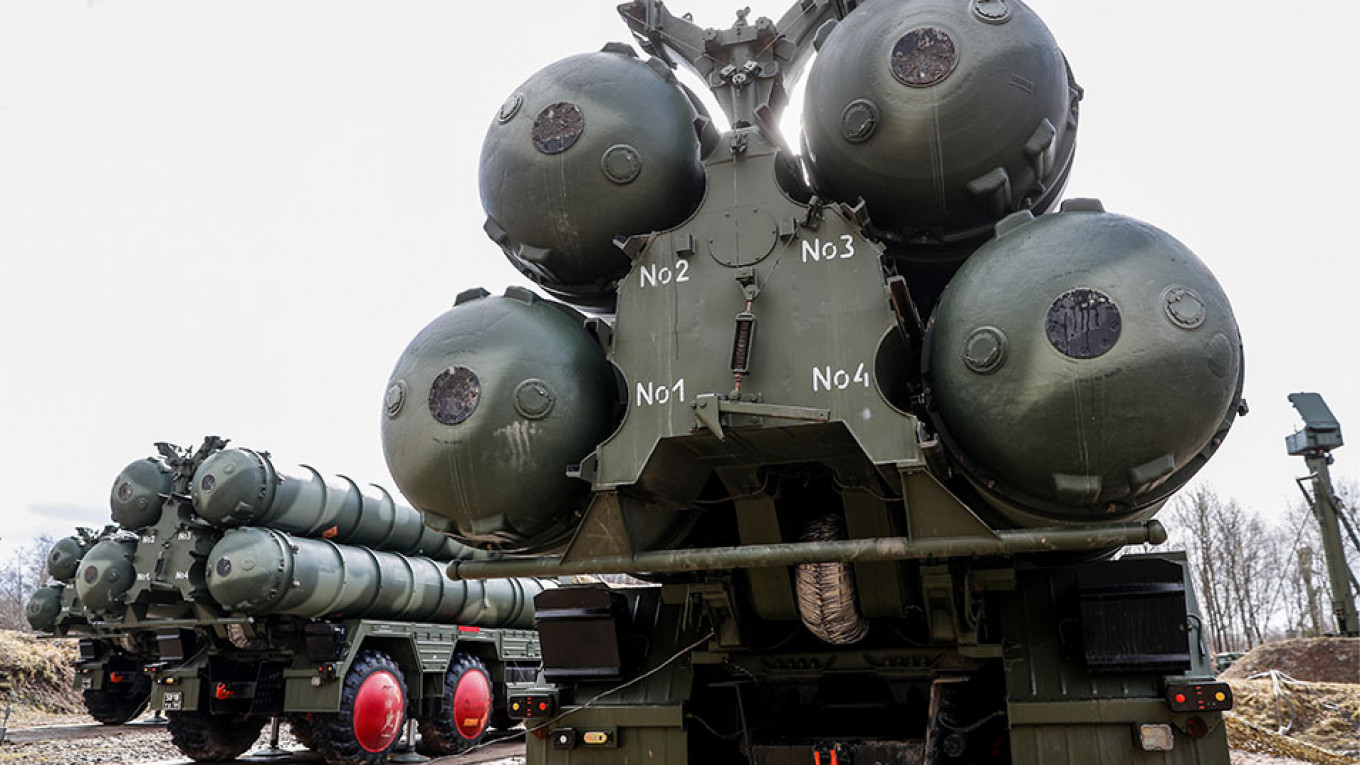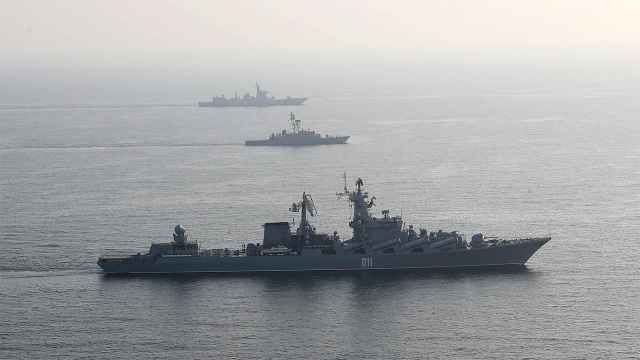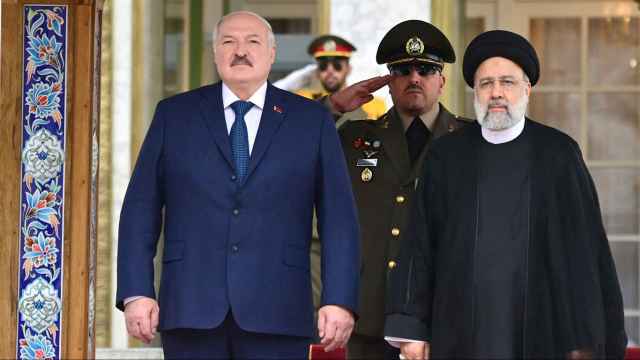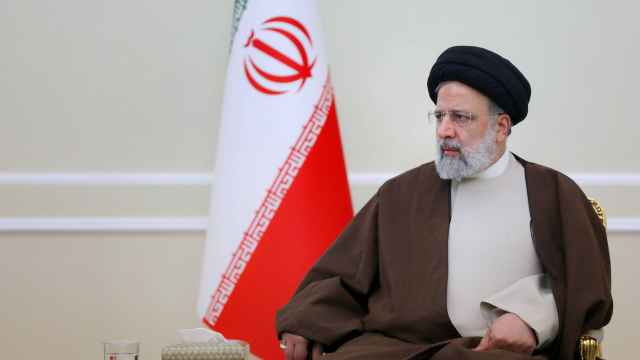Russia has rejected an Iranian request to buy S-400 missile defense systems, concerned that the sale would stoke more tension in the Middle East, according to two people with knowledge of the matter, including a senior Russian official.
The request was rebuffed by President Vladimir Putin, the people said on condition of anonymity because they’re not authorized to discuss the matter. Iranian Foreign Minister Mohammad Javad Zarif visited Moscow May 7.
Russia’s Foreign Ministry didn’t reply to a request for comment, and Iranian officials couldn’t be reached for a response. Iran’s weekend starts Thursday.
Sales of the missile systems are controversial in the Middle East. Turkey, a NATO member and a U.S. ally, is risking punitive measures by the Trump administration for agreeing to buy the batteries.
Russia’s reaction to Iran’s request reflects the delicate balance of power in the Persian Gulf, where a showdown is brewing between the Islamic Republic on one hand, and the U.S. and its Gulf Arab allies on the other. President Donald Trump agreed this month to send more U.S. troops to the region after the U.S. blamed Iran for attacks on Saudi oil installations as well as four ships.
Iranian officials have denied any involvement in the attacks.
Working on relations
Russia and Iran have enjoyed close political and military ties in recent years, though there have been signs that Moscow is seeking to gradually reduce Iran’s footprint in the Middle East as it seeks to protect its relations with other regional powers such as Saudi Arabia and Israel.
“Any real or imaginary strengthening of Iran can lead to escalation — if Russia really refused Iran such a request, it would mean that Russia wants to keep working on relations with Saudi Arabia, Israel and keep a chance for negotiations with Trump,” Ruslan Pukhov, head of the Center of Analysis of Strategies and Technologies in Moscow, said. “If Russia decides to provide Iran with S-400, it will be a direct challenge to Saudi Arabia and Israel, so it will be against Russia’s own national interests.”
Russia is one of the countries defending the 2015 nuclear deal with Iran, which the U.S. abandoned last year before reimposing a host of sanctions on the Iranian economy. The two countries have also helped Syrian President Bashar al-Assad regain control of most of the country following eight years of civil war that claimed hundreds of thousands of lives.
The S-400 is an advanced air and missile defense system intended to engage targets at ranges of up to 400 kilometers (249 miles.)
A Message from The Moscow Times:
Dear readers,
We are facing unprecedented challenges. Russia's Prosecutor General's Office has designated The Moscow Times as an "undesirable" organization, criminalizing our work and putting our staff at risk of prosecution. This follows our earlier unjust labeling as a "foreign agent."
These actions are direct attempts to silence independent journalism in Russia. The authorities claim our work "discredits the decisions of the Russian leadership." We see things differently: we strive to provide accurate, unbiased reporting on Russia.
We, the journalists of The Moscow Times, refuse to be silenced. But to continue our work, we need your help.
Your support, no matter how small, makes a world of difference. If you can, please support us monthly starting from just $2. It's quick to set up, and every contribution makes a significant impact.
By supporting The Moscow Times, you're defending open, independent journalism in the face of repression. Thank you for standing with us.
Remind me later.






